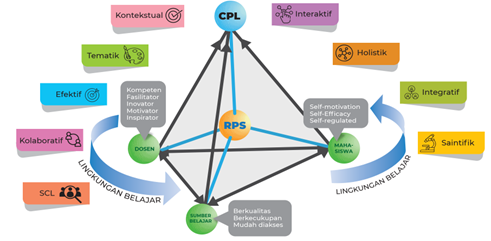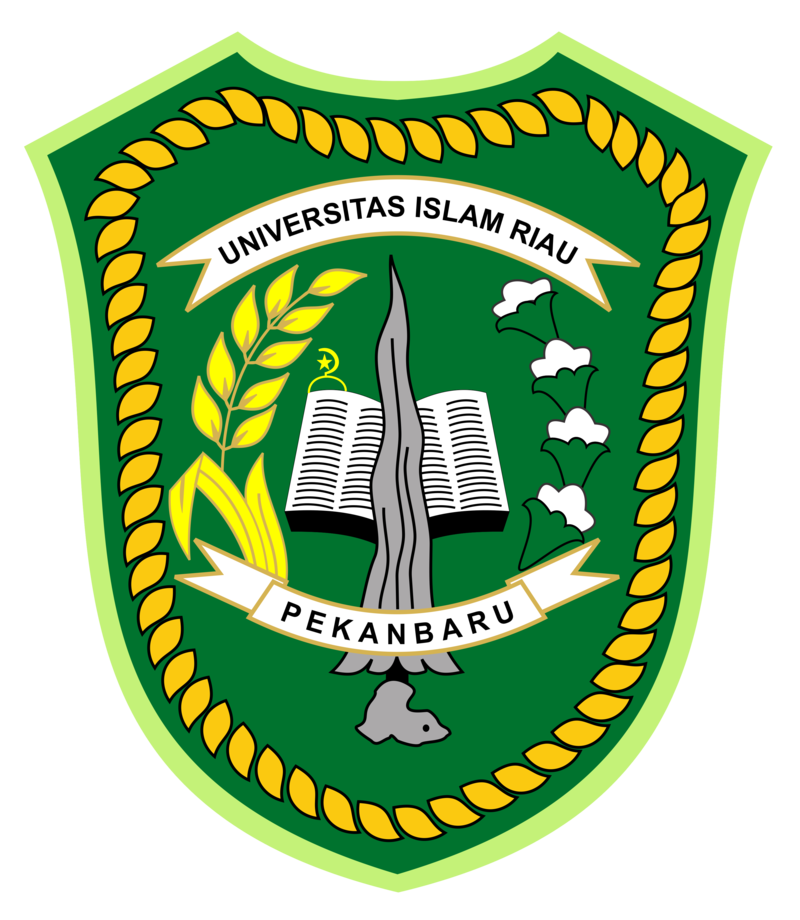Characteristics of Learning Process
- Interactive signifies that the achievement of student learning outcomes is attained by prioritizing a two-way interaction process between students and lecturers..
- Holistic denotes that the learning process encourages the formation of comprehensive and wide-ranging patterns of thinking by internalizing local and national excellence and wisdom.
- Integrative indicates that the achievement of student learning outcomes is attained through an integrated learning process to fulfill the overall student learning outcomes within a unified program unit through interdisciplinary and multidisciplinary approaches.
- Scientific signifies that the achievement of student learning outcomes is attained through a learning process that prioritizes a scientific approach, thus creating an academic environment based on the value system, norms, and rules of science while upholding religious and national values.
- Contextual denotes that the achievement of student learning outcomes is attained through a learning process tailored to the demands of problem-solving abilities within their field of expertise.
- Thematic signifies that the achievement of student learning outcomes is attained through a learning process tailored to the scholarly characteristics of the study program and linked to real-life issues through a transdisciplinary approach.
- Effective denotes that the achievement of student learning outcomes is successfully attained by emphasizing the proper internalization of material within an optimum timeframe.
- Collaborative signifies that the achievement of student learning outcomes is attained through a collaborative learning process involving interaction among individual learners to produce the capitalization of attitudes, knowledge, and skills.
Student-centered learning (SCL) implies that the achievement of student learning outcomes is attained through a learning process that prioritizes the development of creativity, capacity, personality, student needs, and the cultivation of independence in seeking and discovering knowledge. SCL is based on constructivist learning theory, emphasizing that learners must construct their knowledge to learn effectively (Attard et al., 2010). This aligns with the five principles of SCL conveyed by Weimer (2002), namely: (1) promoting active learning and peer involvement, and shifting the power of learning from lecturer to student, (2) positioning lecturers as facilitators and contributors, (3) fostering critical thinking used as a tool for knowledge development, (4) providing responsibilities






